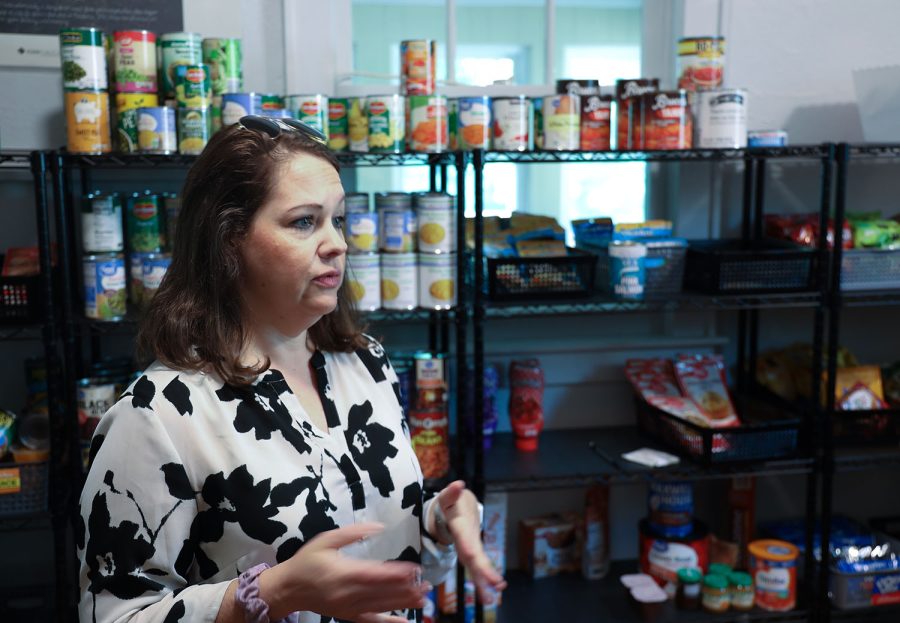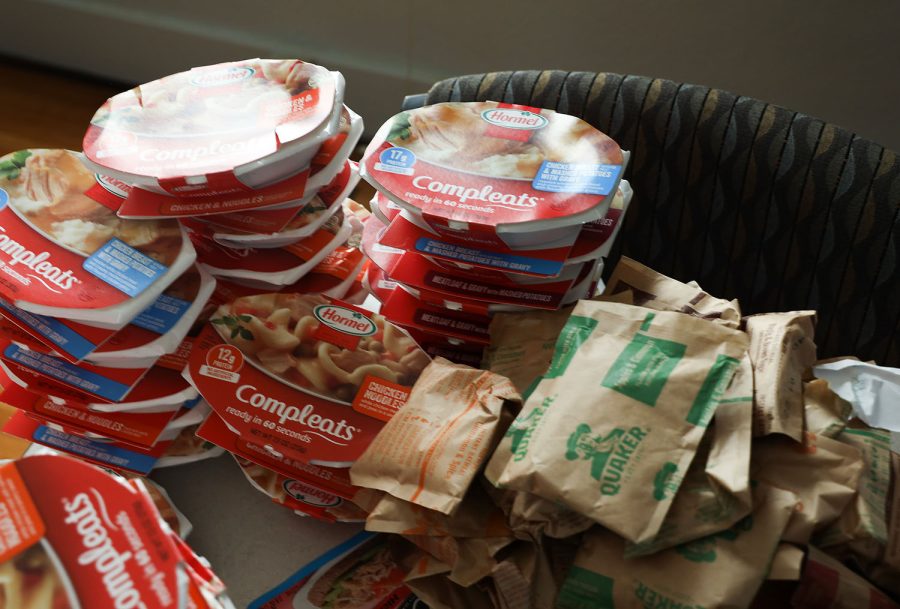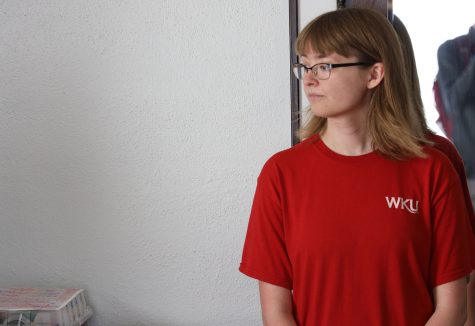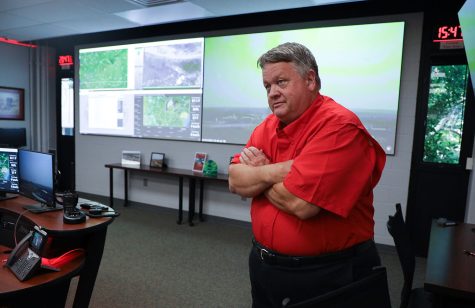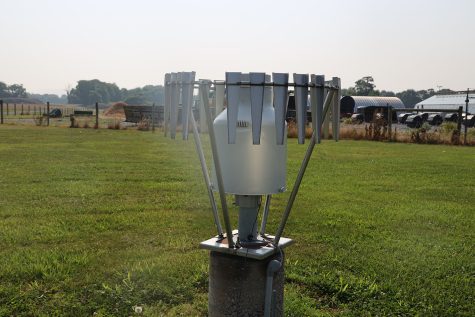WKU Food Pantry helps students, faculty, staff ease hunger
Photo by Nathan Mueller/ Highlands High School
Leslie North, the director of sustainability at WKU, gives a tour of the food pantry in the WKU Office of Sustainability.
Food insecurity is not what anyone wants to suffer through in life. For anyone struggling to decide whether to buy food or make a car payment, WKU’s food pantry makes that decision easier.
The Food Pantry, part of the Office of Sustainability, is supervised by Leslie North and is located at 503 Regents Ave., on WKU’s campus. It’s open Wednesday, Thursday and Friday 9 a.m.- 3 p.m. It offers non-perishable food and toiletries to WKU students, staff, faculty and anyone in the community.
“I started working with the Office of Sustainability in 2018. The pantry started in its original form in 2008. The Office of Sustainability wasn’t fully formed at the time, so it was a student-led project in Potter College,” North said.
This pantry’s inventory grows every year by students posting on social media and talking in classes. Some student organizations collaborate with the pantry to help give out items around campus, for example, feminine hygiene products.
North and the Office of Sustainability receive donations from local restaurants across the area and people from the community. North also receives monetary donations from businesses and restaurants to purchase food to stock in the pantry.
Assisting North in the Office of Sustainability are a graduate student and student volunteers who work on the programs. Certain students are required to have semi-volunteer hours in order to graduate. Their volunteer hours can be in the form of donations of items. They run food drives and canned-food drives and give them to the food pantry.
Ten to 12 people visit the pantry per day to acquire the food and toiletries. They walk in and grab a bag, which is limited to two bags per person, and take items that they need.
The pantry has frequent spikes because of how many students run out of flex dollars or meal swipes. “We see those spikes in visitation and then you know they’re 10 to 12 people. All of a sudden it goes up to 16 to 18 people averaging per day or week,” North said. It normally happens during the end of the semester when there are low options of food sources.
The community also reaches out to North, when they’re stressed to make ends meet, to provide food for their family. For example, the holidays are a rough time if families can’t buy food to celebrate with loved ones.
The pantry creates holiday experiences, like Thanksgiving dinner, for those families who can’t prepare on their own. The pantry makes Thanksgiving packages with traditional foods like mashed potatoes and gravy, green beans, etc. Families can drive by the Office of Sustainability and pick up packages to feed their family.
Another example of easing stress for families is for birthday celebrations. The food pantry makes birthday kits that are easier than you think. The kit contains confetti cake mix, birthday balloons, sprinkles, etc. But one special ingredient that makes it complete is a can of Sprite. Mixing confetti cake mix and Sprite can make a delicious but economical way to bake a cake for a young child whose family can’t afford a luxury birthday party.
The summer is the quietest time for the pantry since students are out for break. Some graduate students live on campus and go through food insecurity. North and her graduate student, Grace Herrmann, set up remote pantries in dorms across campus for easy access. Students can check in their dorms and get whatever they need in the remote pantry.

Herrmann started working at the WKU Food Pantry in August 2022. She’s a grad student who will work two years at the food pantry. “I really like getting to talk and work with people that come in. So we have a lot of conversations and we’re able to get to know them, and they get to know us,” Herrmann said.
“To the community, we used to do much more! During Covid, our position as a university was to be open to everyone because there were so many people who were unemployed in our community. So we were distributing probably double or more to the community at that time.”
During the height of the COVID-19 pandemic, the Food Pantry was closed and couldn’t let students or citizens enter the building, North said. For a year and a half, North captured pictures of the pantry and posted online what they had in stock and people would make delivery appointments by phone or email. The volunteers would package everything they asked for and deliver it to the designated family.
The WKU Food Pantry keeps records by semester of how many people visit the pantry and how many individual items were distributed. In the past academic year, the pantry has distributed over 41,000 items across campus. The most popular items that are frequently out of stock are fruit snacks, pasta and pasta sauce, cereal, ramen, chips, crackers and rice.

